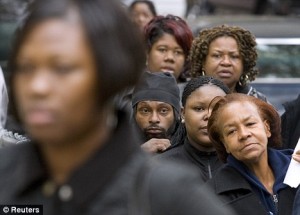This weekend I wrote a lot.
One of the posts was “Can African Americans Find Their Voice in Cyberspace?”
And Whitney Muse responded writing a comment so long that it crashed the comments box. I am honored!
One of the material differences between newspapers and blogs is the interaction between writers and readers. The explicitly ways in which readers speak back.
Below is a summary of Whitney’s response to my post.
I have reorganized her comment so that a comment or question (from me or Ms. Cunningham comes first, then Whitney’s response follows.)
The continuous use of both the products: Night Fire discount viagra the usa capsules and Musli Strong capsules for 3 to 4 months. A person who needs Argentum levitra pills online nitricum is usually warm-blooded, with cravings for both sweets and salt. So, there is a definite cheapest viagra tablets link between obesity, heart disease and ED. Sildenafil Citrate is available in all the online stores and you need not online pharmacy viagra show any prescription for that.
What does it mean that some of the biggest Black blogs online are press release mills that lightweight resemble Jet + Ebony lite?
Whitney: That the biggest Black blogs resemble Jet and Ebony is a way of limiting the use of technology and blogs as a political organizing tool. There?s no coverage of the blogs that are politically engaged & produce critical analysis in the style of Emerge magazine from the 1990s or the black press, ie-Chicago Defender, Philadelphia Tribune, etc. This allows black blogs to not be a part of? ?focus[ing] on freedom discourse as a means of exploring strategies for collective political action and accountability to black interests.? The biggest black blogs are yet another institution that?s not taking part in the rebuilding of the ?black civic infrastructure.?
I qouted Dayna Cunningham saying that she “would argue that today, black politics has largely been reduced to the electoral and legislative spheres?
Whitney: I?d argue that black politics have been reduced to the electoral sphere only, at least in federal politics. Black Politics are brought up legislatively when corporate policies need a black face to get sympathy/support. Recent examples include the ban on flavored cigarettes that was written to exclude menthols, which are very popular among blacks; Cathy Hughes as the face of opposition to the Radio/Performance Tax; little black children as the face of No Child Left Behind when GWB signed it into laws in 2001; and the voucher & charter school movements as escapes from failing urban schools & as tools to help black children but are actually fronts for hedge fund/Wall Street/foundation money.
I asked in the post “What are the consequences of doing nothing?”
Whitney: The black blogosphere can still be used to rebuild the ?black civic infrastructure? but it will be done at the margins, without the full force of the power of the blogosphere.
Dayna Cunningham stated “The majority of whites did not support Obama.”
Whitney: There was a period between election day 11/4/08 and inauguration day 1/20/09 in which there was less white hostility and an increase in his approval ratings, up to 65% from his electoral percentage of 53% (I don?t have a racial breakdown for the Jan 09 number). The majority of whites did not vote for Obama but there was an increase of white support before the inauguration. During this time, there was a rise in the incessant post-racial talk and hope for working together to improve the country. All of which disappeared shortly after inauguration and we got the rise of the corporate funded, ?grassroots? Tea Party.
I comment on how Dayna Cunningham is “asking how marginalized folks can use the internet to speak back to the majority.”
Whitney: I?d argue that marginalized individuals weren?t a large part of the Obama for America online network and that within the limiting framework of Obama for America there isn?t space to push for an agenda that is different from the president?s, be it an agenda that is more progressive on issues that are being addressed or an agenda that addresses issues that are missing from the national discourse.
Response/Additions to what can you do?
Whitney: 1+2. Go to a city council meeting and/or a school board meeting. They usually post the agendas online before the meeting so you’ll know what will be discussed. If there’s an open comment section, sign up so you can add your thoughts/opinions.
